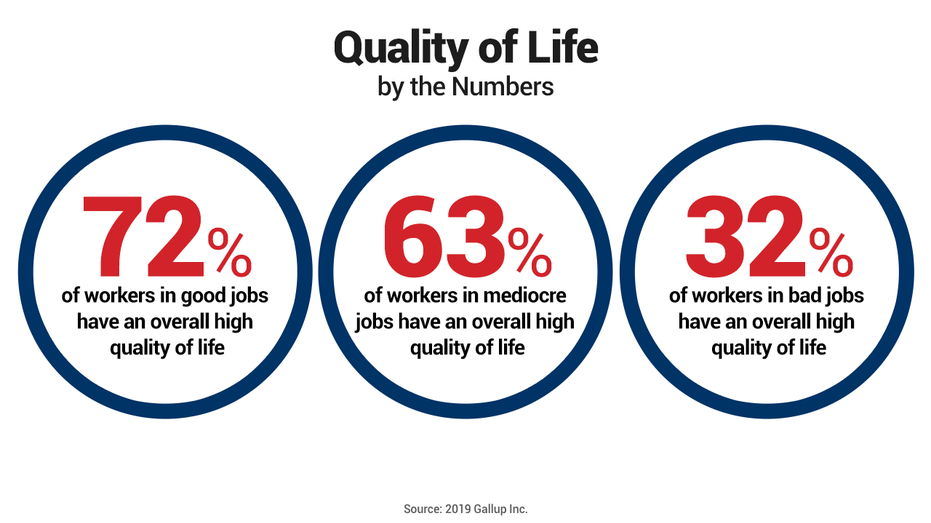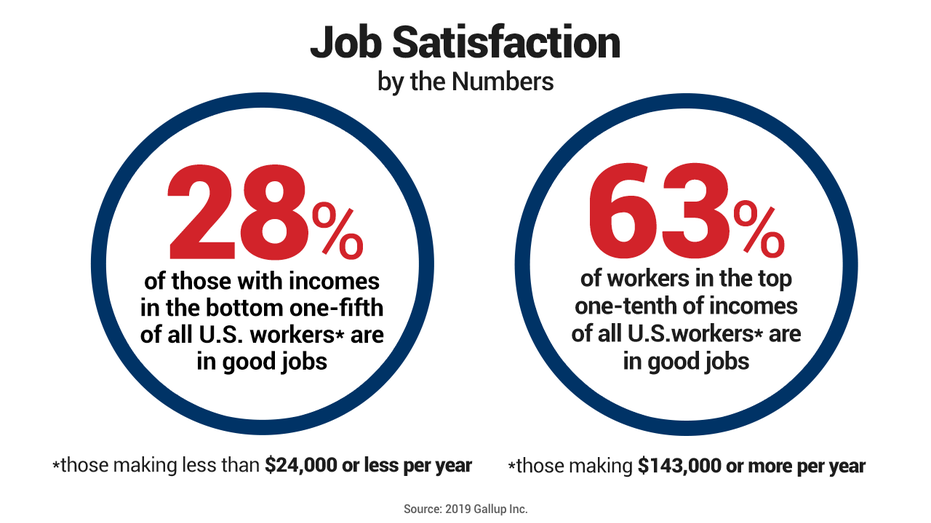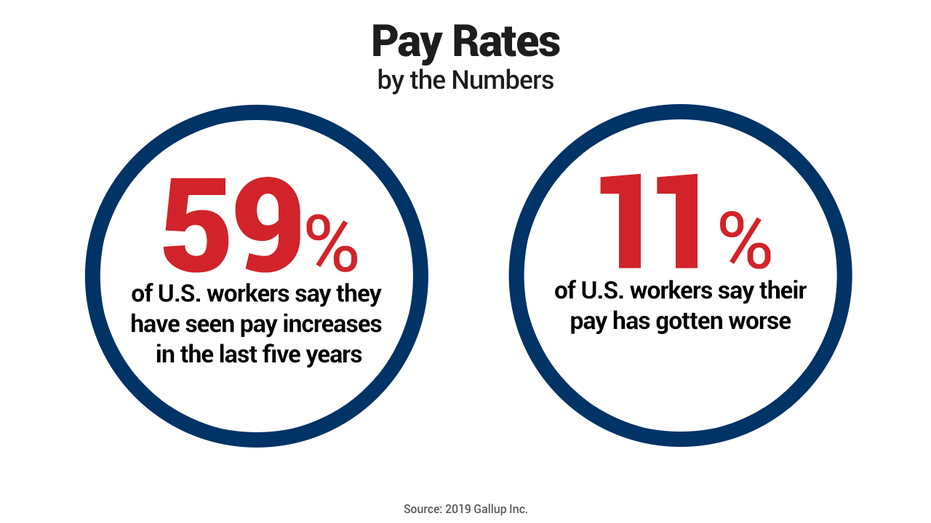Most American workers don't like their jobs, study finds
Even as the U.S. economy chugs along in its 11th year of expansion, steadily adding millions of jobs and boosting paychecks, Americans remain mostly apathetic about working.
According to a new poll released by Gallup this week, only 40 percent of American workers say they’re in “good jobs,” compared to 16 percent of the workforce who believe they’re in “bad jobs.” The remaining 44 percent of workers say they are in “mediocre jobs.”

The Gallup survey asked 6,633 working adults to rate their job based on income, employment benefits, career advancement opportunities, autonomy and control over their working lives and job security. It found that even with unemployment at a 50-year low, fewer than half of the respondents were satisfied with their job.
“The implication is that high job quality cannot be assumed to follow from low unemployment, and key features of the U.S. economy may help explain the disconnection,” the report concluded. “One problem is rising income inequality.”
In recent decades, Gallup found, economic growth has disproportionately favored the top 10 percent of, and especially the top 1 percent, of earners. At the same time, Americans at or below the median income have gained little in labor income.

Unsurprisingly, the poll determined that job quality is closely related to income. For instance, about 63 percent of workers in the top 10 percent of earners (those making more than $143,000 per year) said they had good jobs, while only 4 percent thought they had a bad job. Conversely, workers in the bottom 20 percent of income earners (making less than $24,000) were more likely (30 percent) to say they had a bad job, while roughly 28 percent said they had a good job.
In part, that’s because those who make more money tend to experience great job satisfaction along all the different factors, including those unrelated to pay -- like having a sense of purpose at work, and the power to change things they’re not satisfied with.
Even in the midst of huge economic gains, only 59 percent of workers said they'd seen a pay increase in the last five years. In fact, 11 percent said their pay has actually gotten worse.

Job quality was also starkly different between racial groups, with women of color the most likely to say they were in bad jobs. Only 11 percent of white women said they had a bad job, compared to 31 percent for black women.
“We cannot rely on the unemployment rate alone to tell us what is happening with work in America,” Jonathan Rothwell, Gallup principal economist, said in a statement released with the poll. “This survey offers a detailed look at what people value in their jobs and how they feel about their working lives, and it shows that people want more than just a job.”




















